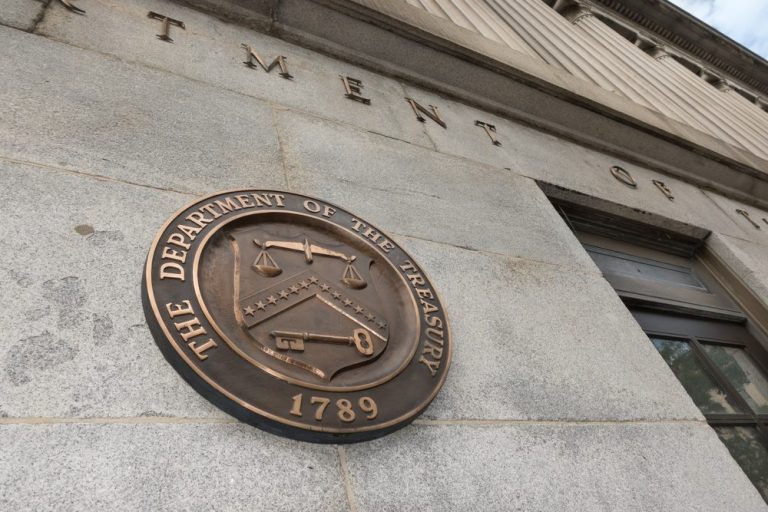Treasury Department to Use ‘Automation and Innovation’ to Fight Illicit Finance

The Department of the Treasury has outlined the priorities it will pursue this year to step up the fight against illicit finance.
The agency aims to increase transparency, leverage partnerships and support responsible technological innovation, it said in a Thursday (May 16) press release announcing the publication of its “2024 National Strategy for Combating Terrorist and Other Illicit Financing.”
One of the Department’s priorities for the year is closing legal and regulatory gaps in the country’s anti-money laundering and combating the financing of terrorism (AML/CFT) framework, according to the release. It aims to do so by operationalizing the beneficial ownership information registry; finalizing rules covering the residential real estate and investment advisor sectors; and assessing the vulnerability of other sectors.
A second priority is promoting a more effective and risk-focused AML/CFT regulatory and supervisory framework for financial institutions, the release said. The Department will work to do so by providing clear compliance guidance, sharing information and providing resources for supervision and enforcement.
The Department also aims to enhance the operational effectiveness of law enforcement, other U.S. government agencies and international partnerships to combat illicit finance, per the release.
The fourth priority announced in the press release is realizing “the benefits of responsible technological innovation” by developing new payments technology, supporting the use of new mechanisms for compliance, and using automation and innovation to find new ways to fight illicit finance, the release said.
“In this critical moment for our national and economic security, we need to continue to close the pathways that illicit actors seek to exploit for their schemes,” Brian E. Nelson, Under Secretary of the Treasury for terrorism and financial intelligence, said in the release. “We recognize the threat illicit financial activity represents to our national security, economic prosperity, and our democratic values, and are focused on addressing both the challenges of today and emerging concerns.”
These recommendations are meant to address key risks the Department of the Treasury identified in February in its “2024 National Money Laundering, Terrorist Financing, and Proliferation Financing Risk Assessments.”
In another recent move, the Treasury Department said in April that it wants more tools to curb terror financing.
In testimony released ahead of an April 9 appearance before the Senate Banking Committee, Deputy Secretary Wally Adeyemo said terrorist groups and state actors continually “seek new ways to move their resources in light of the actions we are taking to cut them off from accessing the traditional financial system.”
For all PYMNTS B2B coverage, subscribe to the daily B2B Newsletter.